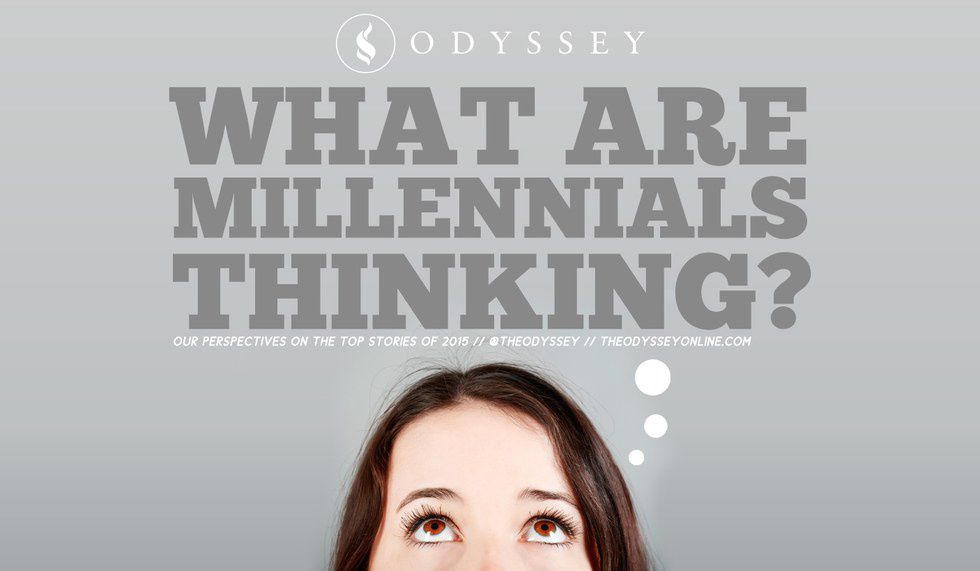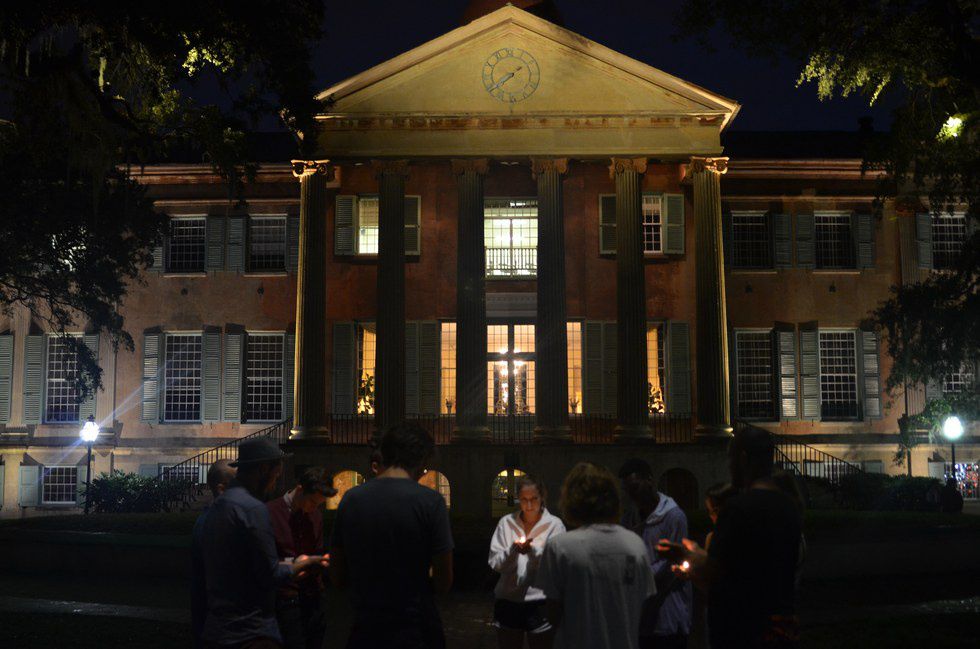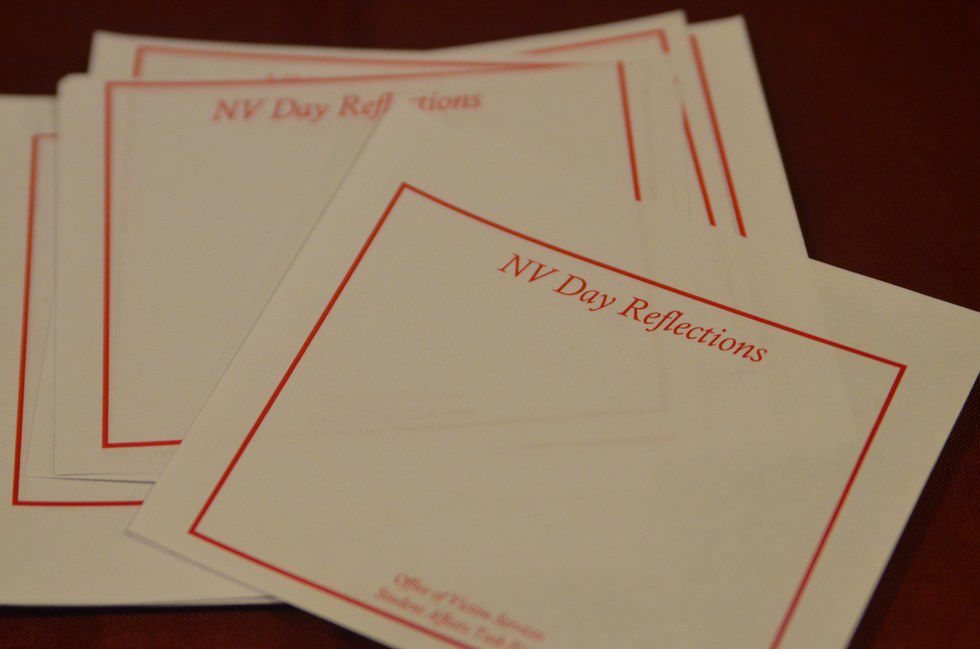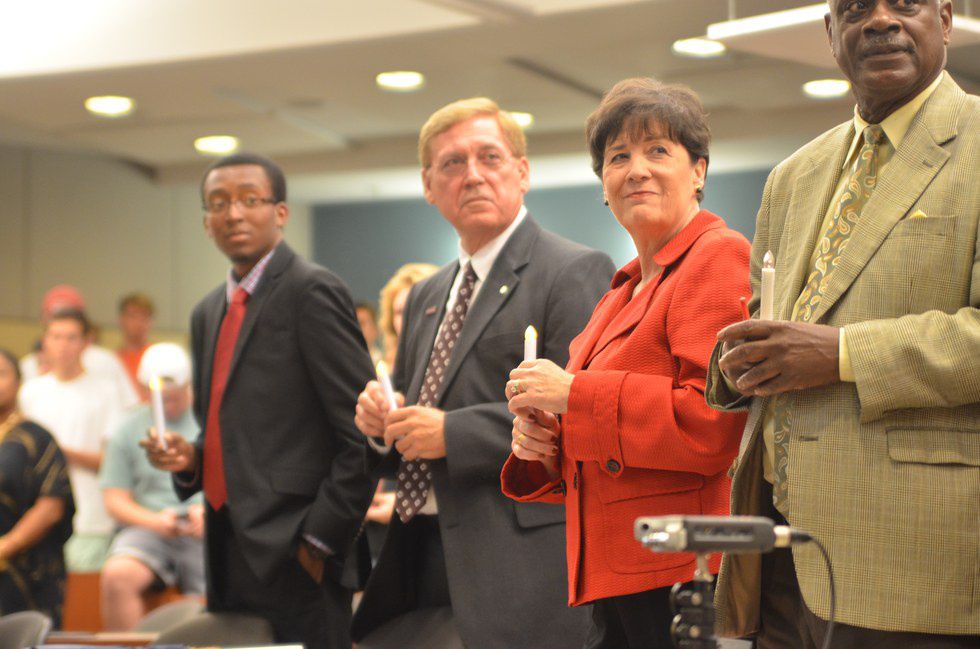Typically in the limelight for consistently recognized tourist appeal, Charleston, SC has more recently received national attention for a tragedy whose impact wracked the nation. On June 17th, nine members of the Mother Emmanuel African Methodist Episcopal Church gathered for a Bible study. A white, unaffiliated man joined their meeting, and the members welcomed him as they joined together to pray. While their heads were bowed in mediation, this invading man opened fire on the church patrons, killing nine souls in attendance. Nine members of this historically black church were horrifically massacred by an invading white supremacist.
News of the massacre flooded news outlets across the country. Details of the event were devastating and jarred the heartstrings of people across the nation. While this sorrow was heartbreaking, not all were entirely shocked by the attack of a historically black church. Places of worship traditionally populated by minorities have been in a perpetual attack since the foundation of our society and was a common crime perpetrated against African-American churches during the not-so-distant Civil Rights Movement. The historical prevalence of attacks of this nature were brought into popular consciousness in the past year through historically recounting films like Selma and in news describing the bombing of a NAACP headquarters in Colorado Springs this past January. White aggression toward black men and women have been prevalent points of discussion during news cycles before the Emmanuel 9 massacre.
Unfortunately, this is not the first time Charleston has been in the news for issues regarding race relations in the past year. In April, a black man named Walter Scott was fatally shot during a routine traffic stop by a white police officer named Michael Slager. Following Scott’s death, the shooting was investigated, and the North Charleston police officer was charged with murder after surveillance tapes contradicted his initial testimony of Scott’s life-threatening hostility. Scott was fatally shot in the back while fleeing the officer’s aggressive advances. Slager was indicted for murder by a grand jury on June 8th, just nine days before the Emmanuel AME Church shooting. In the case of Walter Scott, the murder received a week of news media attention and was then swept under the proverbial rug. The coverage entertained the controversy of yet another black man being killed by a white officer, but when Slager was finally indicted for murder, there was little to no news to bring clarity to his crime. It is this lack of media context that provides a confusing and incomplete view of situations to most news consumers; there is a carefully framed projection of every event or individual in any given news story. Facilitating meaningful dialogues about race and inequality amongst ALL races and creeds is the only way to combat the negative effects of ignorance and lack of media context as a society.
There are many ways to spark effective conversations about race in your community. Immediately following the Emmanuel shooting, the Charleston region banded together in solidarity to demonstrate their support of the victims of this horrifying crime. This event resonated deeply with many in the area, as the Mother Emmanuel Church is located only two blocks away from the College of Charleston’s main campus, and resides in the heart of the city’s historic district. The sheer proximity of danger jarred the tourism-driven, college campus area. In the weeks following the tragedy, news media flooded the city, all hoping to get their shot of the Mother Emmanuel Church. Thousands of mostly white Charleston residents walked hand in hand across the Ravenel Bridge to honor the lives lost, aiming to display their grief collectively and publically. The media frenzy continued through the week, and came to a paramount with President Obama’s trip to Charleston for the funeral of Senator Reverend Clementa Pinckney, who was one of the nine was murdered on that day. Following the service, all media began to filter out of the city, leaving the memorial wreaths in front of the Mother Emmanuel Church to wilt without an audience. Two weeks following the shooting, the once booming chants of “Charleston Strong” became echoes, and for most Charlestonians, the conversation about racism in both our city and nation slowly rolled to a stop.
However, as the fall semester at the College of Charleston progressed, students and faculty alike came together to plan an event that would reengage the city and campus in reminiscence. Hosted by CofC’s Office of Victim Services, the No Victims – No Violence Day of Remembrance and Candlelight Vigil brought members of the Charleston Emmanuel AME Church and the university to spark a meaningful dialogue about race relations in the United States. Charlane Dwight of the Office of Victim Services said their office wanted to “bring to life a discussion” about race on campus. She said, “We want students to know that they have power.”
College of Charleston Student Body President Zachary Sturman spoke at the event to represent the student body, and called his classmates to action by exhibiting an infectious passion for our city and school. He wanted his fellow students to feel compelled to contribute to the conversation about the lives lost in the Charleston massacre, in order to ensure their lives won’t soon be forgotten. The end of his speech summed up his fervor succinctly: “The flames of passion have erupted in our veins. We will not let the fire die down. We will not let the [Charleston 9] down. We will set the world on fire. We are Charleston strong.”
Following Sturman was Floyd Breeland, a long-time member of the Emmanuel AME Church, 16 year veteran of the South Carolina House of Representatives, and current director of a program at the College named Call Me Mister. Breeland began his speech by recalling the Jim Crow era South Carolina he experienced growing up, and proudly pronounced his observation of improving race relations during his lifetime. During an interview following his speech, he remembered that neither his sister nor his wife were able to attend the College of Charleston due to their race in the mid-1950s, and seeing such a diverse crowd at the event gave him vivid hopes for the future of Charleston. Breeland also took to compelling the students in attendance to engage in change, as he preached, “Commit yourself to never be an innocent bystander. Stand up for justice today and every day.” This sentiment resulted in uproarious applause from the mixed audience of College of Charleston students, Mother Emmanuel Church members, and university administrators.
The burden of change falls on those who wish to seek it. Millennials have the tools at their disposal to challenge the status quo and transform of nature of reality as they see it. We have come to the cusp of a truly meaningful conversation – how do we combat the unjust forces of racism and systematic oppression? Culminating a safe space for dialogue amongst all people and perspectives allows issues to be aired productively and without violence, whereas ignoring complex problems that need solutions leave future generations perpetuating ignorance that need not be continued into the future. Gathering your communities, facilitating discourse and exchange of ideas is necessary to bridging the gaps between polarized groups of people. The Charleston Emmanuel shooting wounded the Holy City, but could have happened anywhere. No city is safe from bigotry, racism, or violence, which brings vital importance to holding events like CofC’s No Victims – No Violence Day of Remembrance. While the physical evidence of the shooting has disappeared, the lives of those nine brave souls won’t soon be forgotten if we are able to continue these impactful interchanges about race in our communities.
President of the College of Charleston, and former Lieutenant Governor of South Carolina, Glen McConnell closed the commemorative event by reminding our community that widespread participation and patience is necessary in influencing change. As he laid out his vision for the future of the College of Charleston as a university and driving force in the city itself, McConnell announced the progression of programs to stimulate diversity rates at the university. He reminded his audience, “Change is something incremental. It’s something we build on every day.” In an interview after his speech at the No Victims – No Violence event, McConnell said that he felt that students at all universities can engage in meaningful conversations about race and diversity by simply surrounding yourself by people different than you, and exploring varied cultural perspectives in a respectful way.
Every city in the United States could benefit from formally constructed forums discussing race and the tensions that lead to violence in our society. We cannot remain silent about controversial issues any longer. We must remember and mourn the loss of those whose deaths spurred dynamic dialogues about racial tensions and oppression in our communities. We must dissect the implications of a racially stratified society and stop ignoring disparities in mobility amongst social classes and races. We must keep the names of those lives lost in our mouths, hearts, and consciousness so that we do not forget the fight against hatred we must win. Remember Walter Scott. Remember Reverend Clementa Pinckney, Reverend Daniel Simmons Sr., Cynthia Hurd, Sharonda Singleton, Myra Thompson, Tywanza Sanders, Reverend Depayne Middleton-Doctor, Susie Jackson, and Ethel Lance.
Keeping the conversation alive is everyone’s responsibility. Breaking down stereotypes, facing hard-hitting realities, and acknowledging ugly truths are only some of the elements of maintaining meaningful dialogues about race in our communities. The College of Charleston’s community has kept the conversation going about race and a nationally mourned tragedy through events intended to spark discussion amongst students and local leaders. Other universities and cities must become a part of the conversation, too. This is not a Charleston issue. This is not a South Carolina issue. This is not a Southern United States issue. This is geographically unbiased struggle faced by all people in our country. Be a part of the dialogue.

























